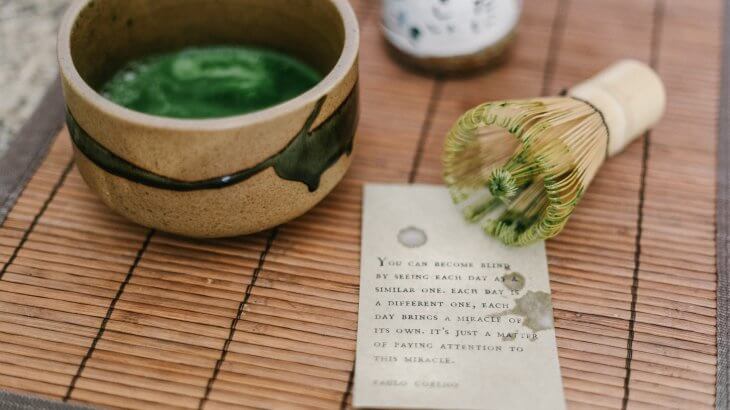The Japanese tea ceremony is a tradition of this country that dates back to the 9th century. It includes the preparation and serving of green tea. It is a common method used by hosts to show hospitality to visiting guests. The atmosphere in which a tea ceremony takes place is typically slow and relaxed. A stay in Japan is simply not complete without attending a tea ceremony. As you travel through Okinawa, consider a stop at one of these amazing places.
Contents
1. Traditional Okinawa Ryukyu-Style Tea Ceremony Experience In Naha
Bukubuku-Cha tea, or bubble tea, is traditional to Okinawa. It was served to any visitor of high importance during the Ryukyu Dynasty (15th-19th centuries). The kings of Ryukyu brought unity to Okinawa Island. Bukubuku-Cha is a foaming tea brewed with green tea, Chinese tea, peanuts, and brown sugar.
Map: https://www.veltra.com/en/asia/japan/okinawa/okinawa_main_island/a/119371
Access: 10-minute walk from Yui Rail Shuri Station
Hours: 10:00-17:00
Closed: Tuesdays and Wednesdays
Website (includes map): https://www.veltra.com/en/asia/japan/okinawa/okinawa_main_island/a/119371
Price: USD 39.36 per person
2. Ryukyuan Tea Ceremony Buku Buku Tea Akeshino no Kai
Here you are promised a very slow, relaxed, and friendly ceremony under the mentorship of Chieko Tanaka, a former elementary school teacher. Participants will dress in traditional bingata kimono before being served their bukubuku tea. This tea was not only served to important visitors during the Ryukyu Dynasty, but is even today used as a beverage to bid good luck to part travelers.
Map: http://okinawaclip.com/en/detail/1161
Access: 3-8-6 Ahacha, Urasoe City
Hours: 9:00-18:00 regularly
Closed: Intermittently; a call-ahead reservation is required
Website (includes map): http://okinawaclip.com/en/detail/1161
Price: Tea ceremony is 1,000 yen per person; the tea-making workshop is 2,000 yen per person
3. Tea Ceremony Experience and Free Walk-in Yukata
Enjoy your tea ceremony dressed in traditional Japanese yukata (summer kimono). This ceremony takes place with a chair and a table, classroom style, which is beneficial for those not wishing to sit on their knees. After the ceremony visitors are encouraged to take a ninety-minute walk about the grounds dressed in their yukata.
Map: https://en.activityjapan.com/publish/plan/22439
Access: Assembly point at Flower Bird Fugetsu (Chado Urasen House)
Hours: 10:00-15:30
Closed: Open year-round
Website (including map): https://en.activityjapan.com/publish/plan/22439
Price: 7,500 JPY per person, children welcome
4. Okinawa Sasagirian
One of the main goals of a Japanese tea ceremony is for the participant to receive wabi-sabi or a peaceful state of mind. At the Okinawa Sasagirian visitors are exposed to a lavish environment that inspires that very thing. Walk along a quaint stone path to wash your hands in a natural spring, then enter the tea room where you will experience not only the taste of tea, but the way of it: harmony, respect, purity, and tranquility.
Map: https://www.sasagirian.com/english/
Access: 20-minute drive from Yaka Interchange; 10-15 minute drive from Kyoda Interchange
Hours: 1:00PM-, 3:00PM-, Saturday-Sunday
Closed: Monday-Thursday
Website (including map): https://www.sasagirian.com/english/
Price: Adults 13,000 JPY; Children 6,500 JPY (Including tax)
Though the Japanese tea ceremony originates in Kyoto, there is no question that in Okinawa the tradition is respected just as highly. For the tourist who is eager to learn about the past, and how the present has instigated change without disrespecting the seeds of ancient times, a tea ceremony in Okinawa is a terrific place to begin.
View this post on Instagram
▼The Best Tea Ceremony Experiences in Tokyo▼
▼The Best Tea Ceremony Experiences in Kyoto▼
▼The Best Tea Ceremony Experiences in Osaka▼
